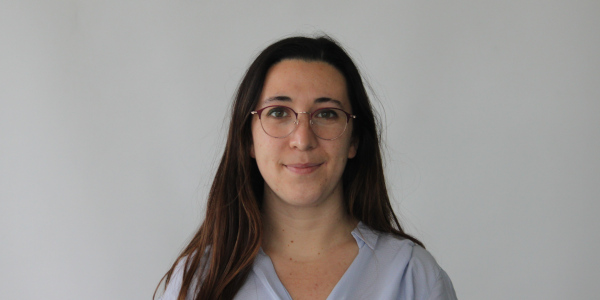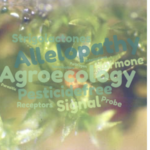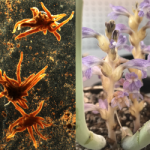@article{Martinez2024,
title = {Comparative Analysis of Two Neighboring Conducive and Suppressive Soils Toward Plant Parasitism Caused by \textit{Phelipanche ramosa} on \textit{Brassica napus}},
author = {Lisa Martinez and Jean-Bernard Pouvreau and Christophe Jestin and Gregory Montiel and Antoine Gravot and Solenne Berardocco and Nathalie Marnet and Alain Bouchereau and Erwan Delage and Philippe Simier and Lucie Poulin},
doi = {10.1094/pbiomes-12-23-0140-r},
issn = {2471-2906},
year = {2024},
date = {2024-11-00},
urldate = {2024-11-00},
journal = {Phytobiomes Journal},
volume = {8},
number = {4},
pages = {425--445},
publisher = {Scientific Societies},
abstract = {<jats:p> In Western France, rapeseed ( Brassica napus) cultivation faces substantial yield losses due to the root holoparasitic plant Phelipanche ramosa. However, recent observations have shown a reduction in parasitism within previously heavily infested fields. This study investigates two neighboring rapeseed soils with distinct levels of parasitic infestation, considered suppressive and conducive. Using a cocultivation system of Brassica napus and P. ramosa, we comprehensively examined rhizosphere exudates, parasitic plant attachment, and rhizosphere soil microbiota. Our findings revealed that the suppressive soil effectively reduced parasitism by impeding broomrape attachment and development, as well as inducing necrosis of tubercles. This suppressive effect was specific to postattachment stages, leaving germination and haustoriogenesis preattachment stages unaffected. Analysis of microbial structures suggested that the suppression of parasitism is predominantly of fungal rather than bacterial origin. Correlation network analyses identified three groups of amplicon sequence variants (ASVs) associated with suppression. Notably, seven ASVs were inversely correlated with parasitic attachments, and only one ASV, identified as Berkeleyomyces, a necrotrophic fungus responsible for black root rot, was positively correlated with necrosis and was more abundant in the suppressive soil. This study demonstrates the contrasting parasitic plant development on two physicochemically similar soils, highlighting the central role of fungal dynamics in the rhizosphere. These results provide valuable insights into the mechanisms underlying soil-mediated suppression of P. ramosa, offering potential strategies for mitigating the impact of this root holoparasite on rapeseed yields in the region. </jats:p>},
keywords = {},
pubstate = {published},
tppubtype = {article}
}


